Many Small Nations: A Collective and a Practice
Celebrating maroon geographies in the belly of the beast
What follows are remarks (lightly edited) delivered by the Director, Dr. Jessica Marie Johnson, to introduce and launch a day of celebration, gathering, and community titled “Many Small Nations: A Day of Black, Indigenous, and Black/Indigenous History,” held on November 30, 2023. As we close out a rich semester, one filled with active research and community-building, but that also unfolded against genocides occurring in Palestine, Congo, Haiti, and beyond, we know the work continues, seed by seed, drop of water by drop of water.
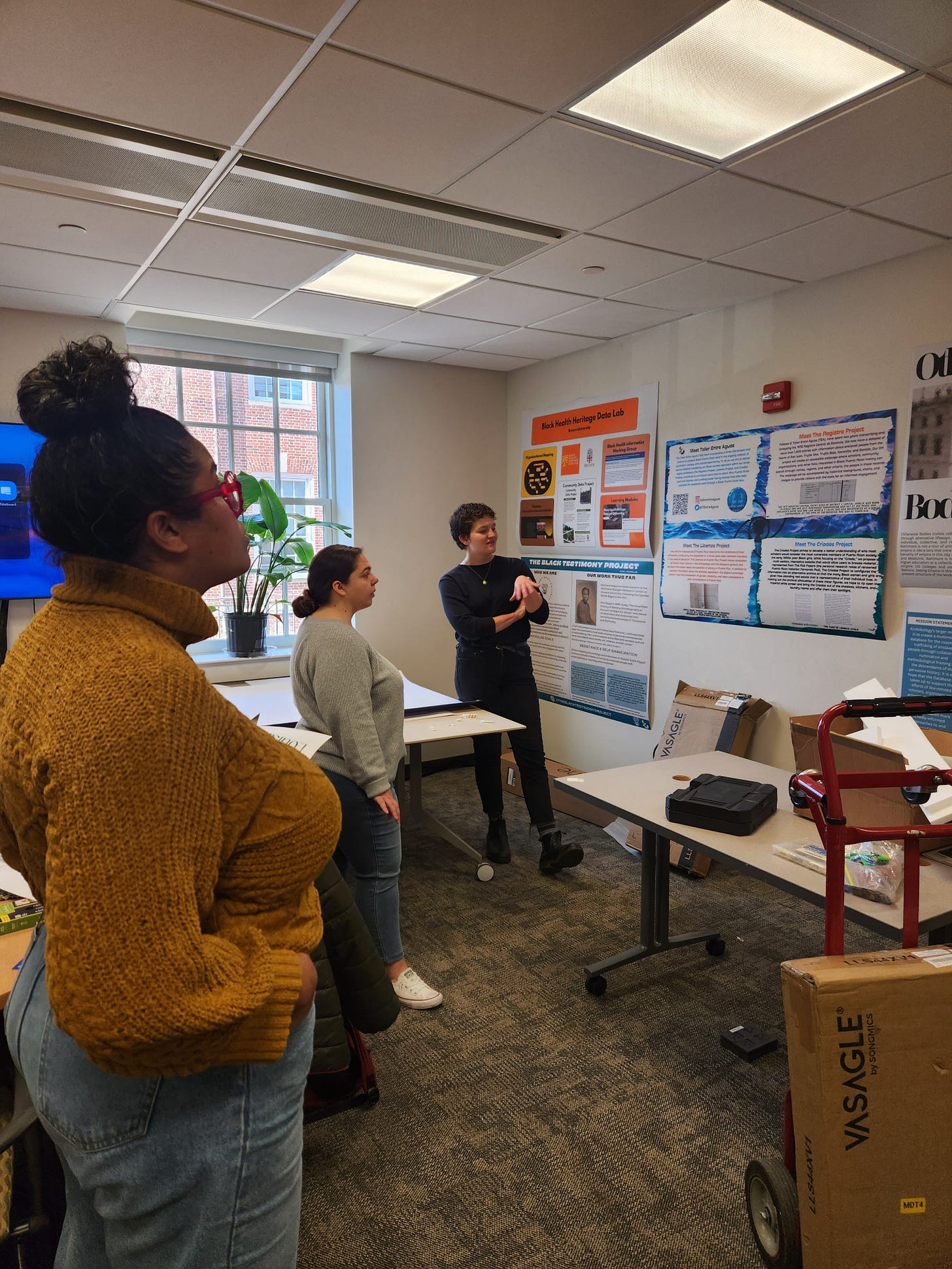
Welcome to Many Small Nations: A Day of Black, Indigenous and Black/Indigenous History. My name is Jessica Marie Johnson and I am Associate Professor of History at Johns Hopkins University and the Director of LifexCode: Digital Humanities Against Enclosure.
When Dr. Christina Thomas and I co-founded LifexCode in fall of 2020, it was a time of pandemic and protest. We wanted to create a space for researchers interested in community, in organizing, in questions about social justice, in antiracist and decolonial thought, who also had some interest in digital tools, media, archives, and coding, to come together. At best, we imagined we would connect with movement-making on the ground, with artists, with community members and also add our digital skillsets to the imagining of a world beyond antiblack and colonial violence. At the worst, we would at least be surviving, experiencing, and understanding the apocalypse in community together.
We drafted guiding principles from the lives and work of Black feminists near and far, past and present, from Harriet Jacobs to Alexis Pauline Gumbs. We took as our praxis the principles of emergent strategy (adrienne marie brown), transformative justice, blues epistemology (Clyde Woods) and the parables of sowing change set out by the prophet Octavia Estelle Butler, all communities of knowledge whose work is rooted in the everyday, the small, the relational, and the maroon encampment. And we took up Dr. Tina Campt's "invitation" to enter into the Loophole of Retreat created by Harriet Jacobs, by taking up, each year for the last four years, one of the terms that she set out as part of the events at the 2019 Guggenheim Museum conference (hosted by Saidiya Hartman, Simone Liegh, and Campt). Those terms were: INSURGENCY, VESSEL, TOUCH, SURFACE, FORMATION. This year our keyword is SURFACE.1
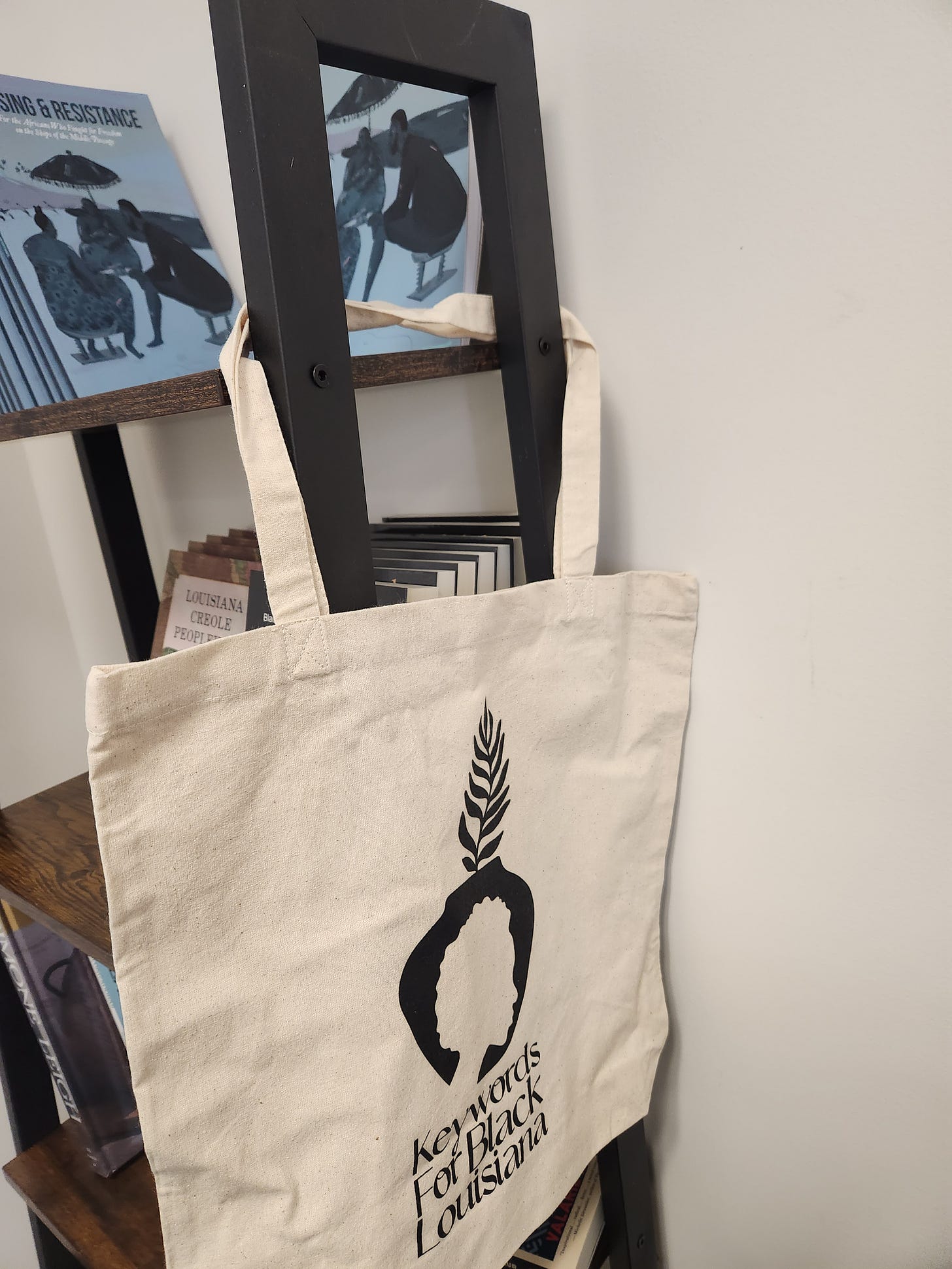
Since then, we have become something that I couldn't have imagined--a collective of labs, projects, and initiatives that defy the enclosure of the university, the city, even the nation, that transgress imperial knowledge formations and roots itself in relationality, generosity, empathy, and an ethics of care.
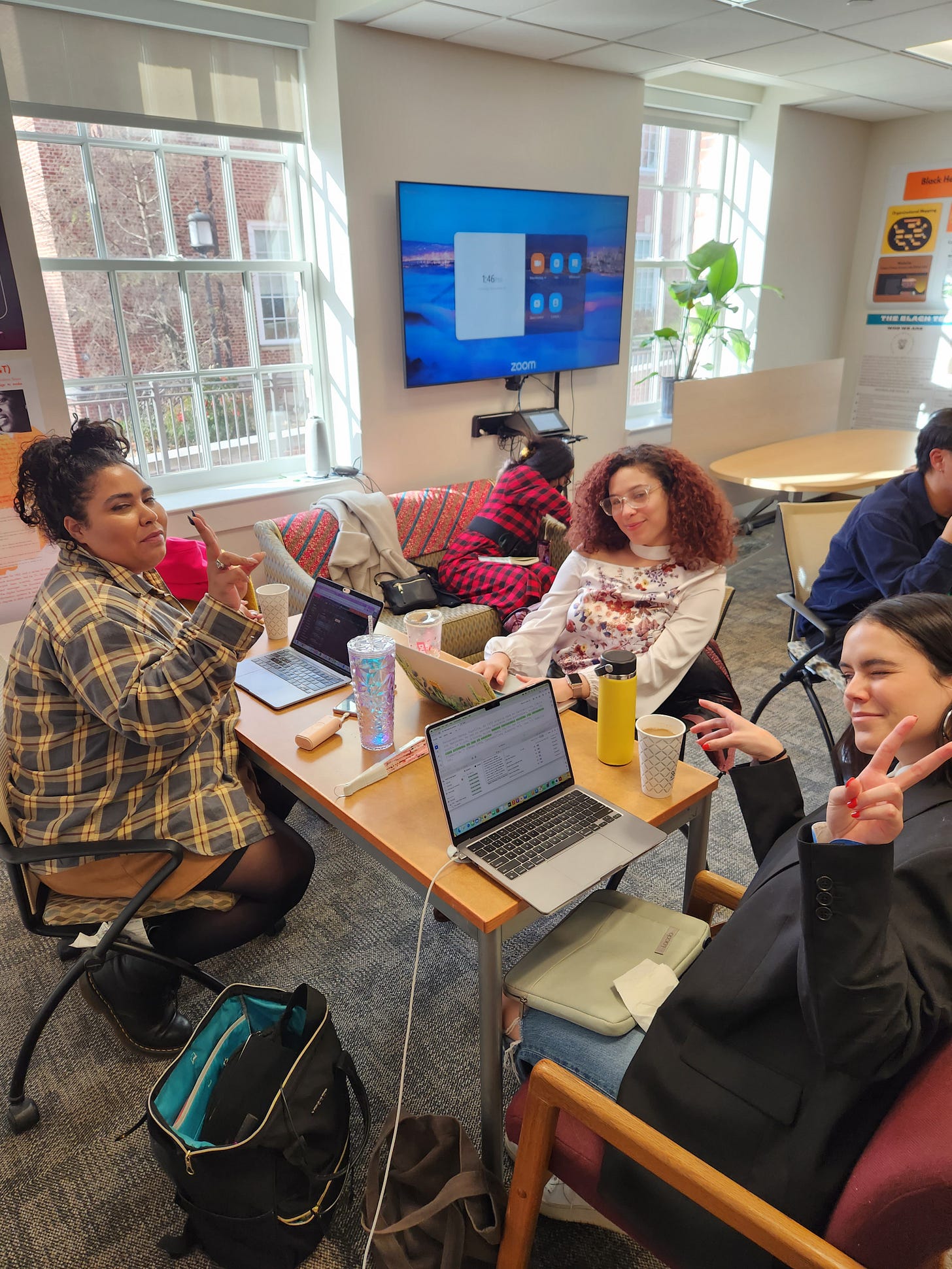
We prove again and again that deep, careful, rigorous research does not require us to pit ourselves against each other, or be removed from the communities we are accountable to, or organize hierarchies of power, surveillance and punishment. We are doing something different. And because we are rooted in our communities, and in Black and Indigenous ways of being, we know this way doing the work is not new. It has been here all along. It is, as Leanne Simpson wrote in her theorizing of Nishnaabeg resistance and resurgence, “As we have Always Done.”
Since then, we have become something that I couldn't have imagined--a collective of labs, projects, and initiatives that defy the enclosure of the university, the city, even the nation, that transgress imperial knowledge formations and roots itself in relationality, generosity, empathy, and an ethics of care.
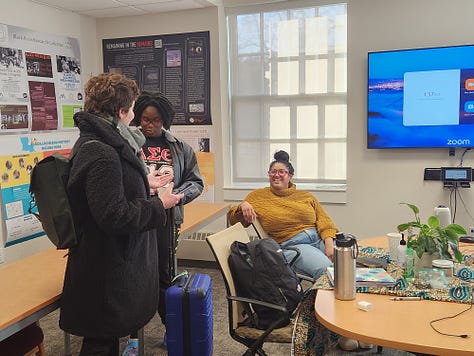
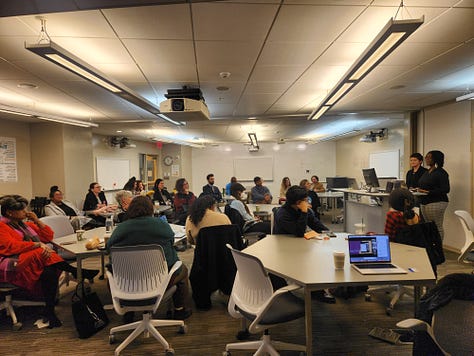
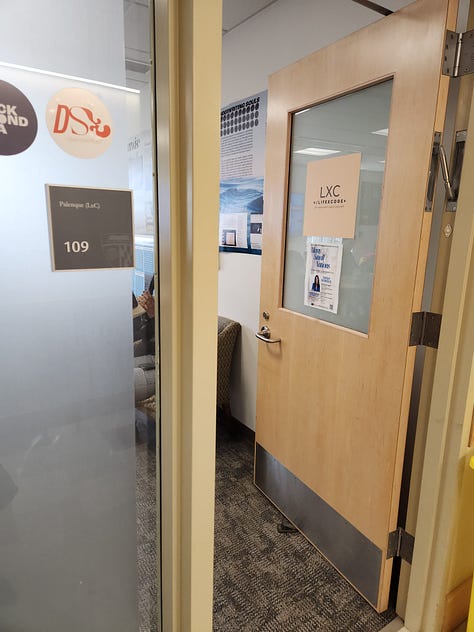
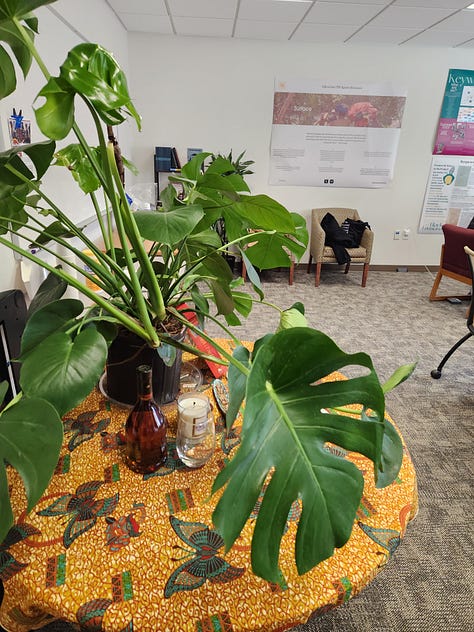
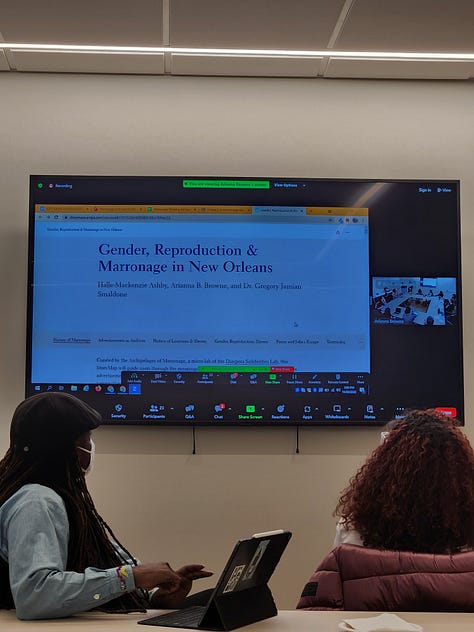
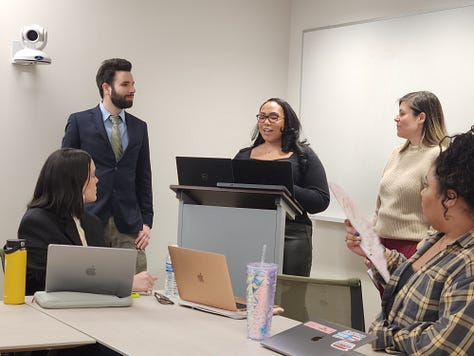
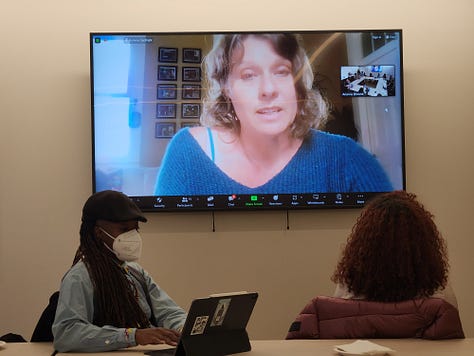

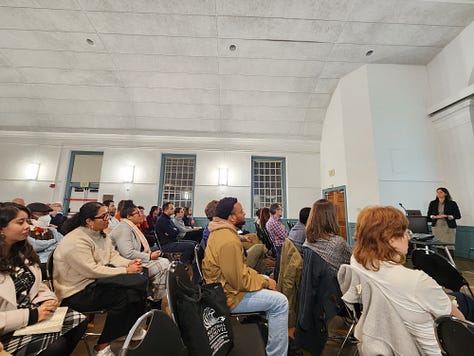
This day is not just a celebration of Black, Indigenous, and Black/Indigenous research, but also a celebration of that way of being. Each semester, since Fall 2020, we have hosted a LifexCode Research Celebration, where we gather to share the work that has been happening, join our friends in allied projects like Hard Histories and Inheritance Baltimore, and reflect on lessons learned.
This year, what was a virtual gathering is now a series of poster presentations, which you can find at Palenque (Macaulauy 109) all day.
Eleven labs and projects have worked hard to develop visual narratives of their work, their vision, and their goals. We hope you'll check them out. And feel free to take pictures, share! We really want to make sure those members are celebrated for the work that they have been doing and that they shared with us in posters for today. You will also find, up on the walls, a list of our principles, which we ask all LifexCode members to read and abide by as they enter the virtual and in-person Palenque.
Today, we are here with Keywords for Black Louisiana, which is one of the original LifexCode projects. Originally, Keywords for Black Louisiana was formed from three projects: Research Black New Orleans, what is now Archipelagoes of Marronage, and the Colonial Documents Project.
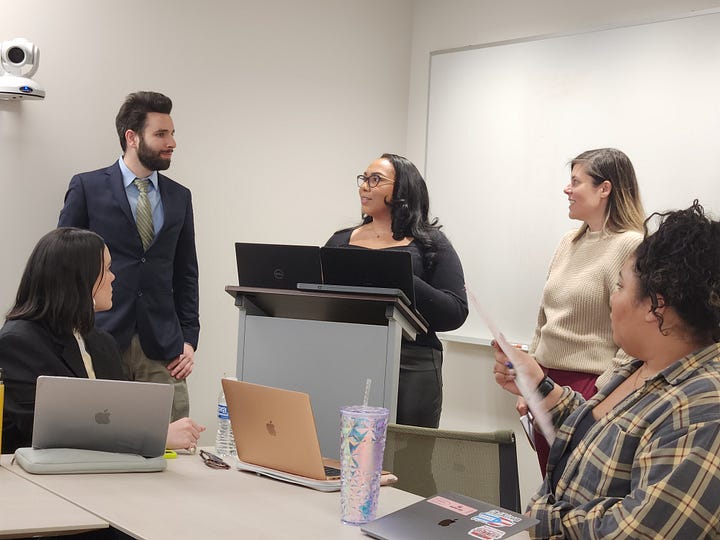
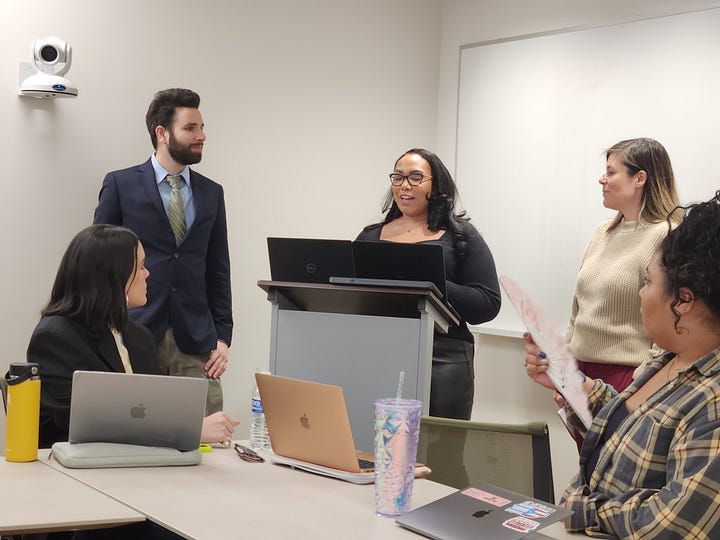
Archipelagos of Marronage is now part of the Diaspora Solidarities Lab and will be doing a soft launch of their StoryMap (a module of the Open Classroom for New Orleans Culture, dir. Dr. Bryan Wagner) this afternoon! (Applause)
This morning, we're here with Colonial Documents Project, which has expanded, grown and done some amazing things. If you're part of the project, please raise your hand or have been part of the project at some point (Applause). Emily (McGinn) and Margaret (Burri) also, I need your hands filled up, please. Thank you. It has really been amazing to see how this community has grown. So I am excited, very excited, to report that, the National Historic Publication Records Commission, which has funded our work for the past two years through a NHPRC-Mellon Planning Grant has seen fit to upgrade us to the implementation grant level with a Publishing Historic Records grant to continue our work!
So if we could have a round of applause for all of the Keywords, for Leila Blackbird (Doctoral Candidate, UChicago), our Senior Research Editor and Dr. Lupe Garcia, our Managing Editor. It really is a testament to the work that has been happening.

So I am excited, very excited, to report that, the National Historic Publication Records Commission, which has funded our work for the past two years through a NHPRC-Mellon Planning Grant has seen fit to upgrade us to the implementation grant level with a Publishing Historic Records grant to continue our work!
We must thank the generous sponsors of the work you'll see throughout the day: the Mellon Foundation, the Johns Hopkins University Krieger School of Arts and Sciences, Johns Hopkins University Sheridan Libraries, the Center for Medical Humanities and Social Medicine, the National Historic Publications and Records Commission, Michigan State University, and Brown University.
This event is a collaboration between the Harrison Lecture Series in the Johns Hopkins University Department of History and the Diaspora Solidarities Lab. We want to thank to them and the Center for Africana Studies (especially Minkah Makalani) for co-sponsoring this event. Thanks to the chair Tobie Meyer-Fong and my colleagues Sarah Pearsall, Francois Furstenburg, and Martha Jones for imagining that the Harrison lecture could develop into so much more, an event that showcases the amazing research and creativity of our intellectual community.
We especially want to thank a few people without whom these events did not happen. Afua Quarshie, the Community Knowledge Lab lab manager, could not make it today, but there is nothing happening today that doesn't have her creative and managerial brilliance behind it. Tatiana Esh, the DSL Project Manager, Denise Ignatowski in Sheridan Libraries, the Black Beyond Data Project Manager, Dr. Brooke Lansing, Project Manager for LifexCode and Dr. Nadejda Webb, ACLS Post-Doc and Incoming Assistant Director have both offered critical support in organizing.

Laura Konisek, the LifexCode Digital Dissertation Fellow, provided on the ground support here in Baltimore, as did Ellie Palazzolo, Co-Project Manager and Digital Curation Fellow with Keywords for Black Louisiana. Rachel LaBozetta, Katilin Kane, Megan Zeller and Lisa Enders keep the administrative ship running on all things generated across not just by the DSL, but across all of LifexCode labs and projects, and the History department, and make sure we dot all the Is and cross all the Ts.
A huge thank you to Dean Chris Cannon, Dean Chris Celenza in Krieger, Dean Long and Bill Branan in Sheridan libraries for consistently offering enthusiasm, support and infrastructure development for several of the projects you'll meet throughout the day. Thank you to our DH Librarian Emily McGinn, Sheridan's Director of Academic Research Margaret Burri, as well as Alex Gil, our technical consultant and all around Digital Coach, and Jon Baynes, our Research Software Engineer who have worked closely with our members on their research.
And I must mention the important work the Digital History Workshop and the Center for Digital Humanities do which supports the deepening knowledge at JHU in technical skills and exposes faculty to the digital in seminars and more.
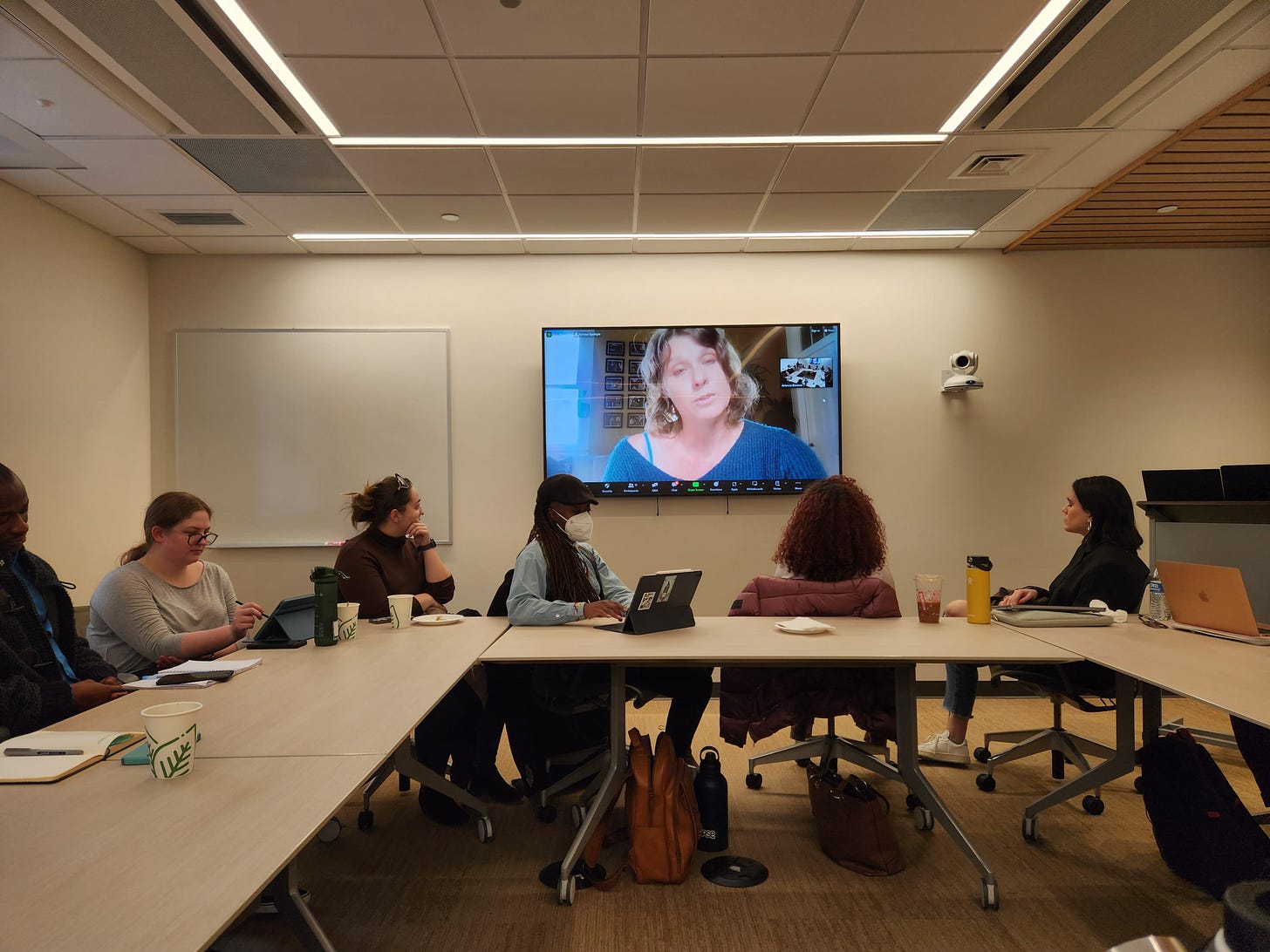
I know I may be forgetting people, please charge it to the head not the heart.
Finally, thank you to the over one hundred LifexCode members, fifteen institutions, eight community partner organizations, and hundreds of attendees of our events near and far over the last four years, especially my closest collaborators Dr. Sasha White, Dr. Kim Gallon, Dr. Bryan Wagner, and Dr. Yomaira Figueroa, the PIs and co-PIs who have trusted this collective to be a place where their labs, projects, and researchers can live, grow and thrive.
As always, thanks to my co-founder, Dr. Christina Thomas, who has moved on to bigger and better things, but truly laid the foundation for this work.
Keywords, take it away!
Jessica Marie Johnson, November 30, 2023, Baltimore (to Louisiana)
The original remarks described these as “principles,” but Campt describes them as “terms,” i.e. “terms and definitions as a baseline/bass line for what we hope to gather today.”


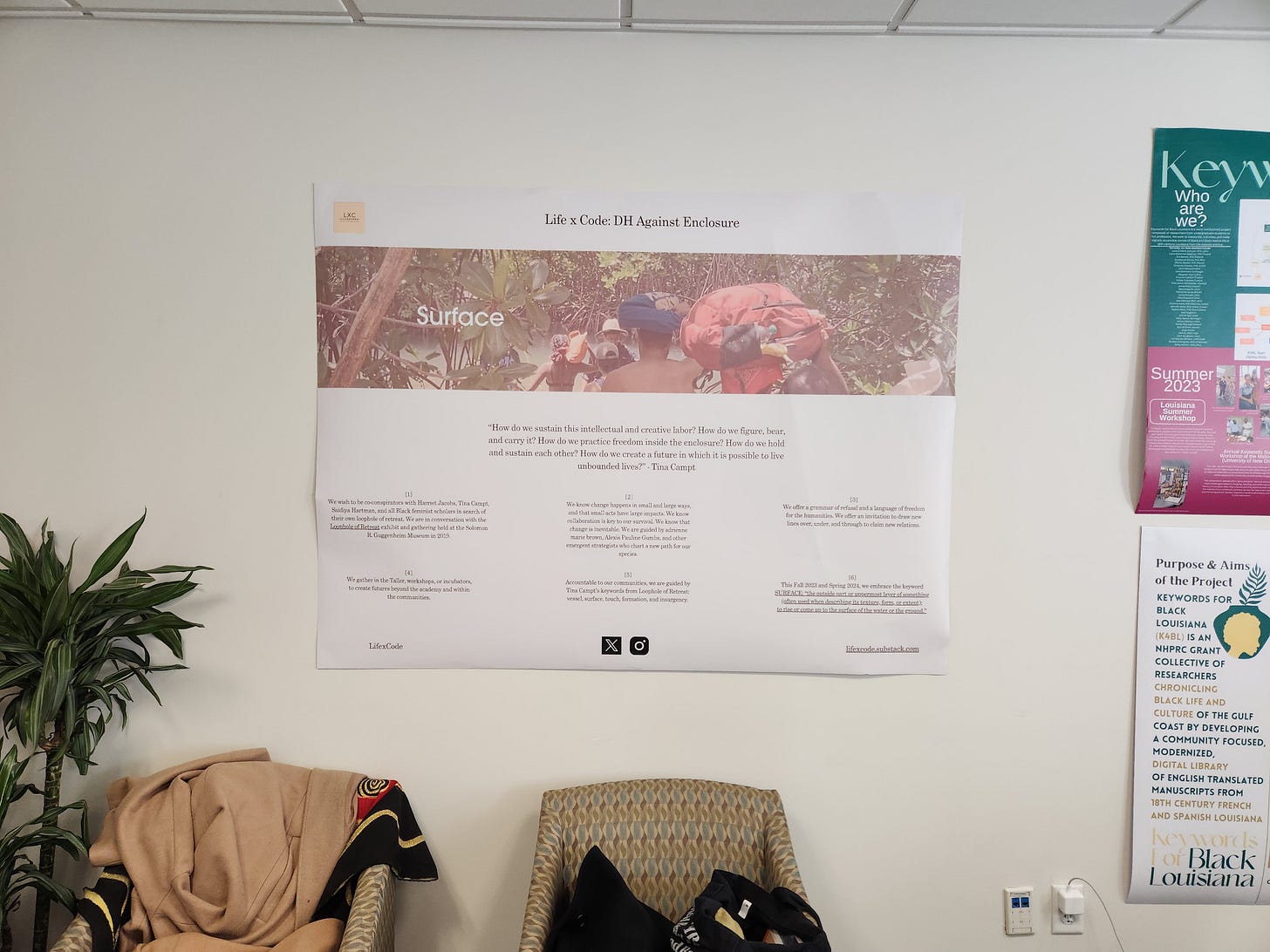

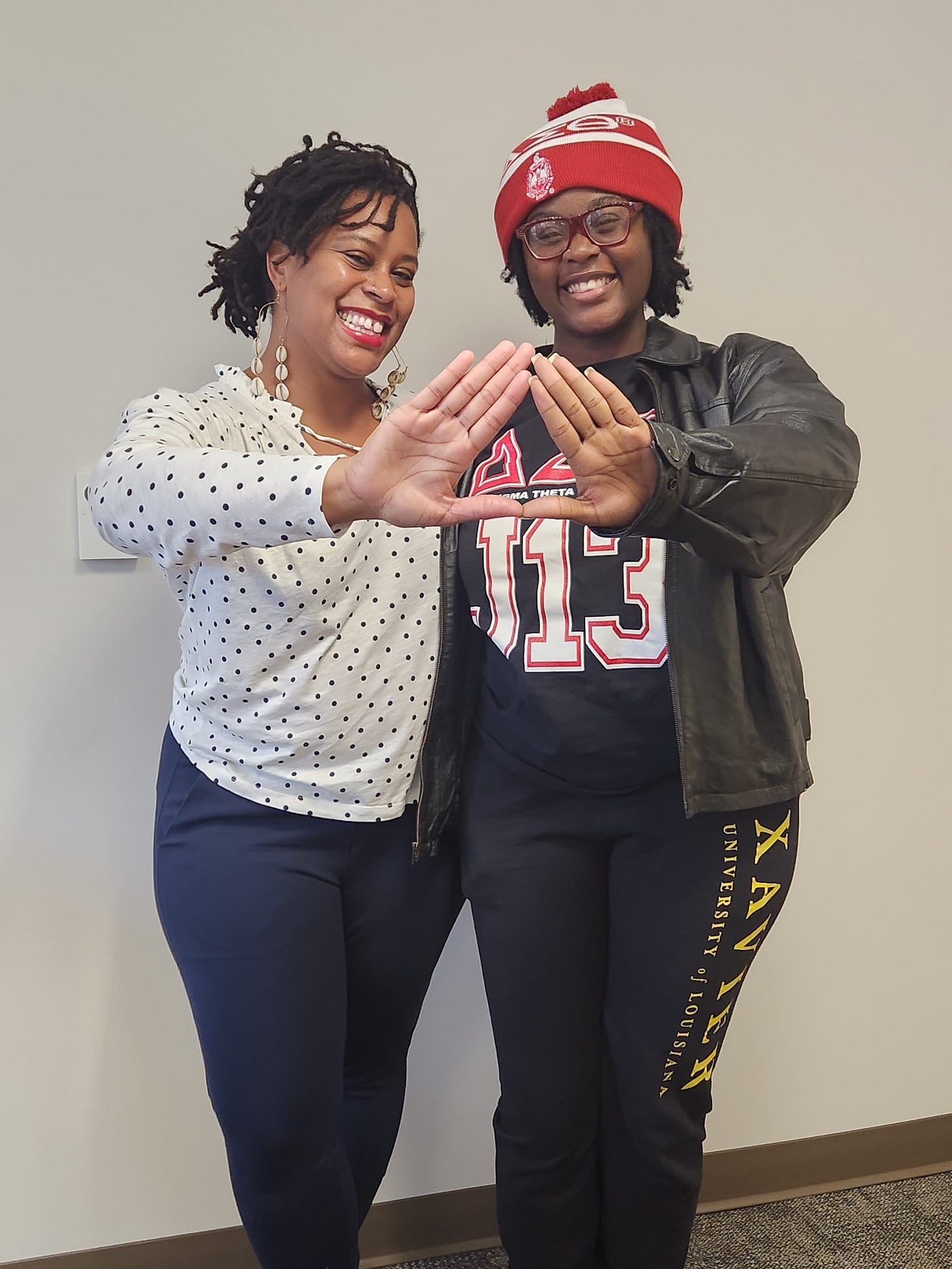
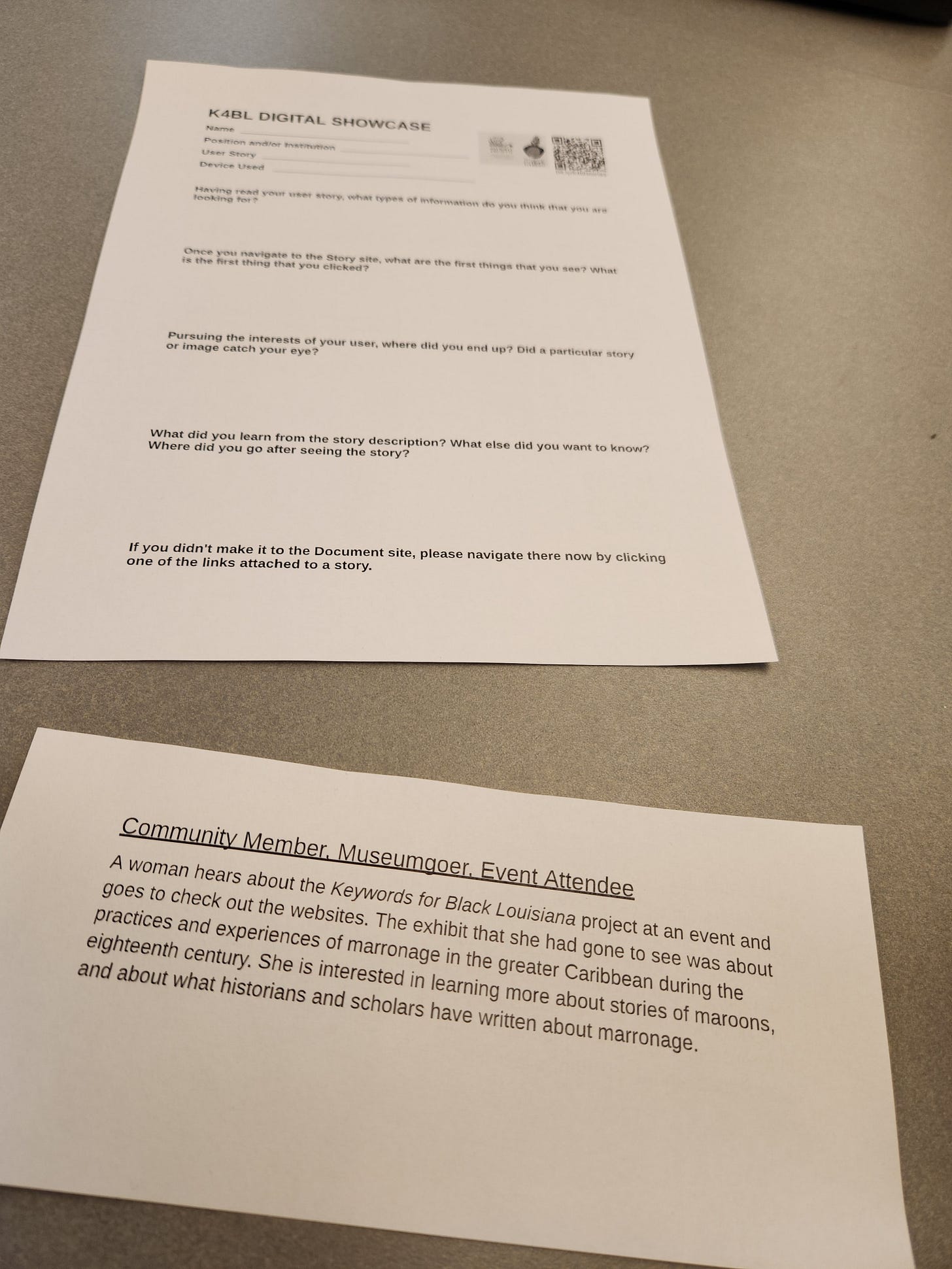
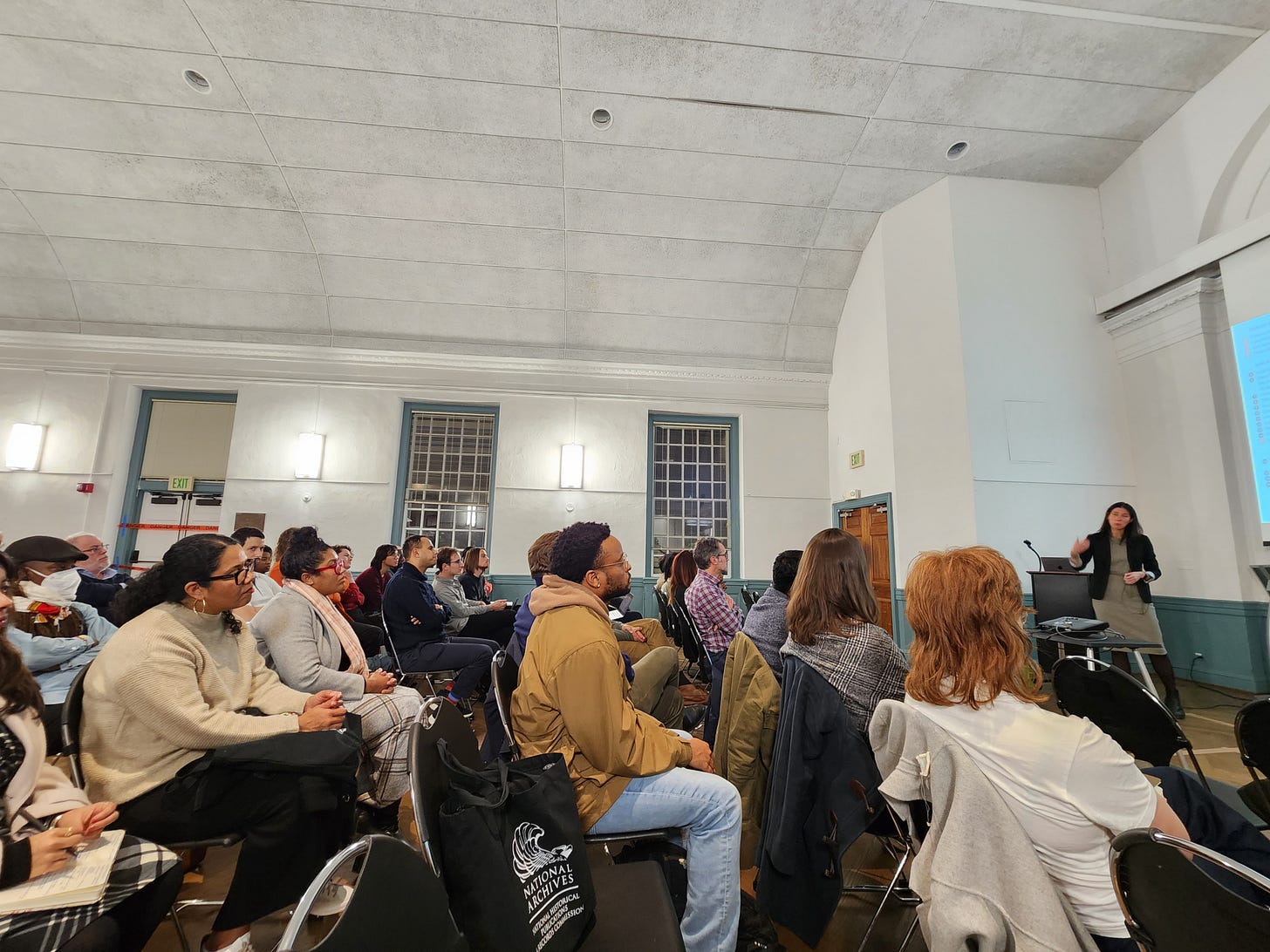
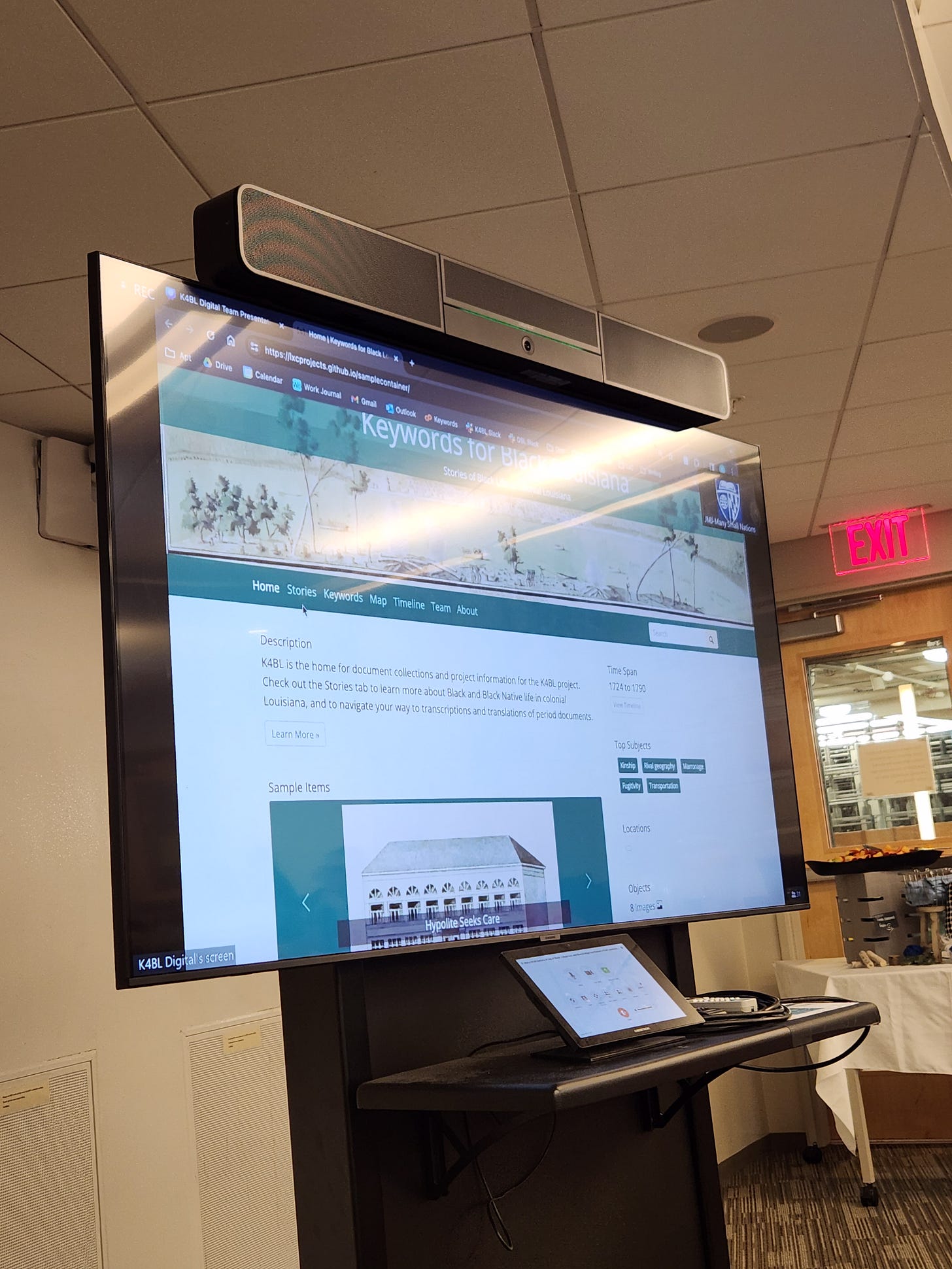
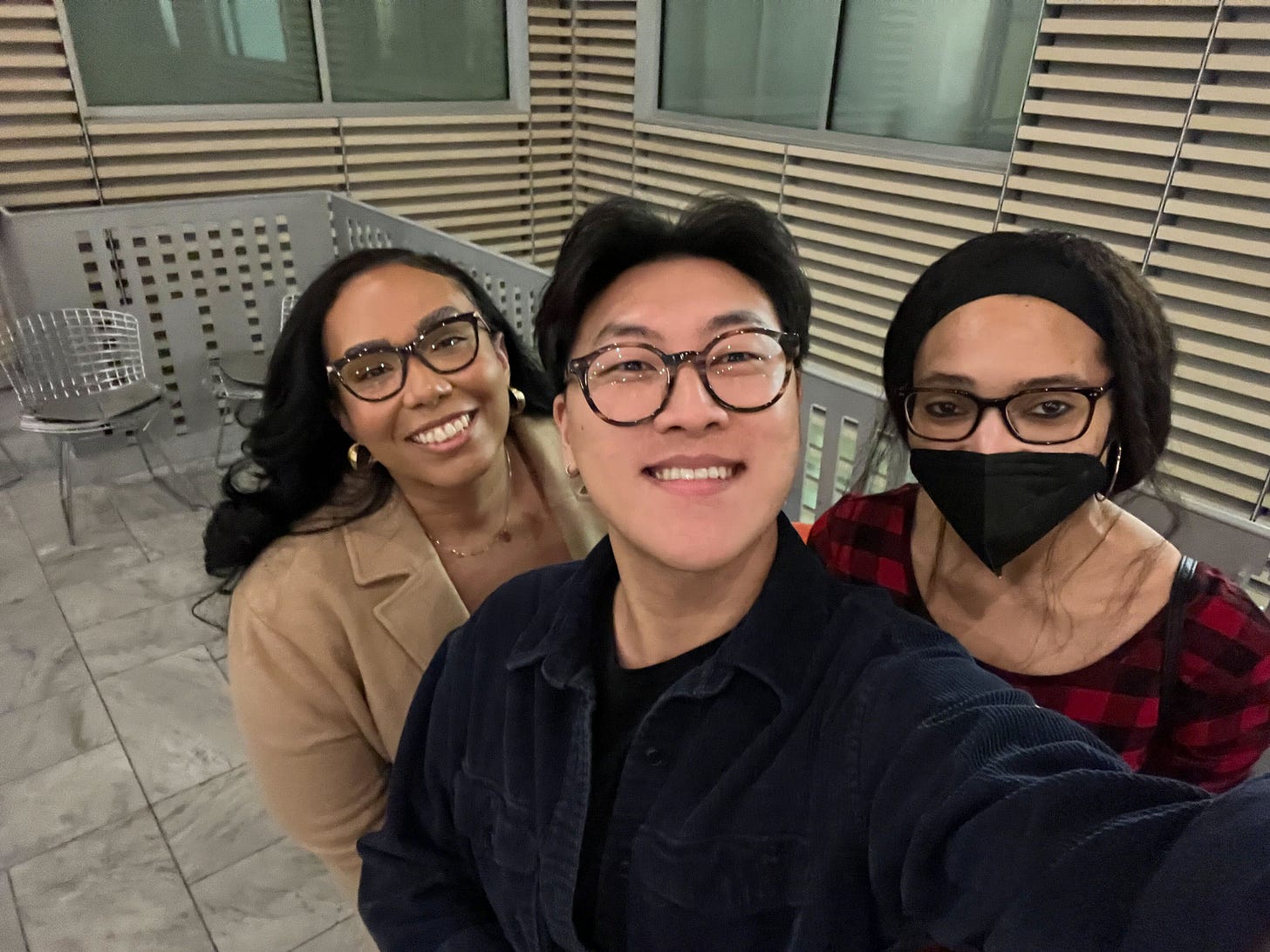
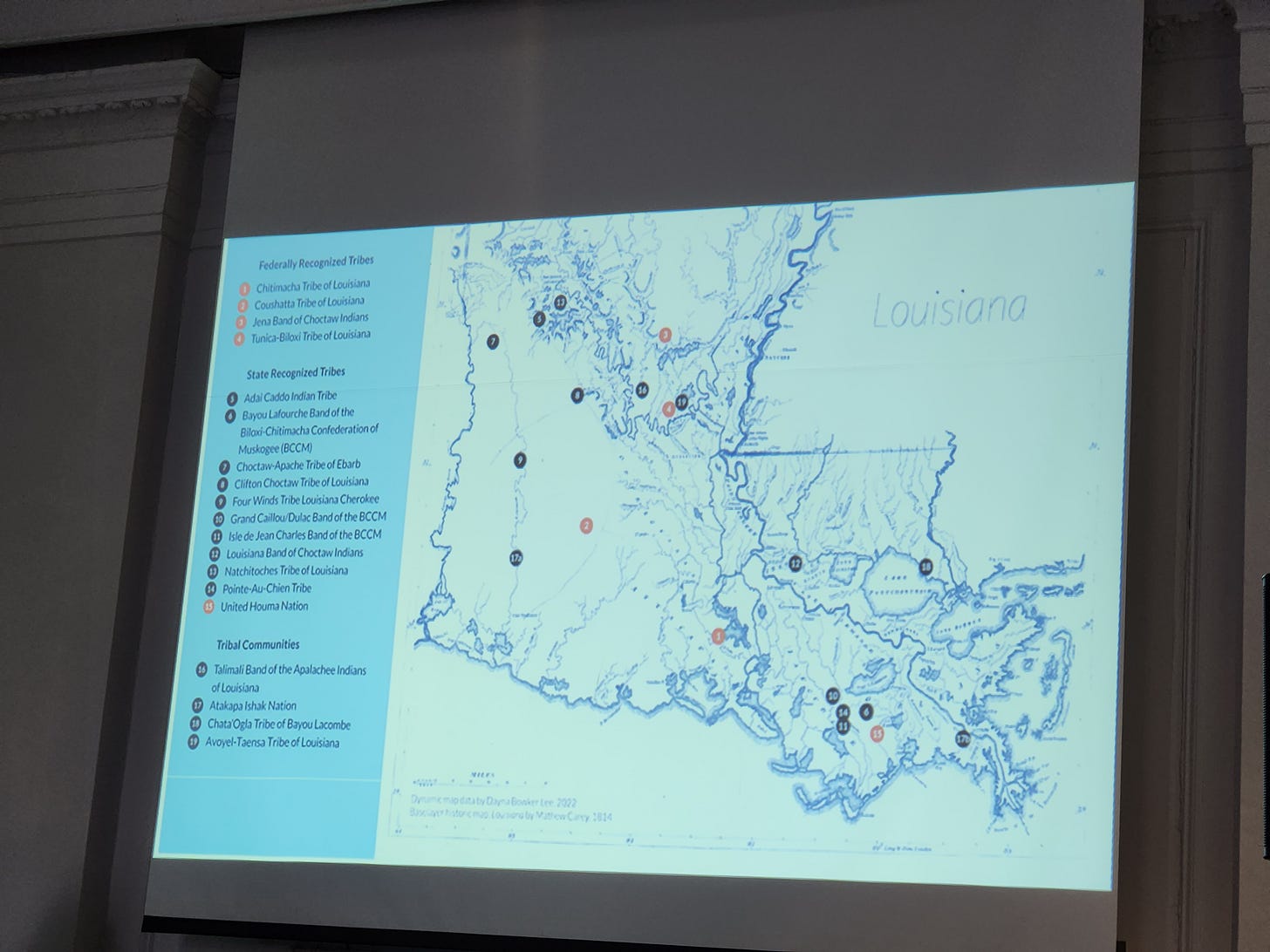
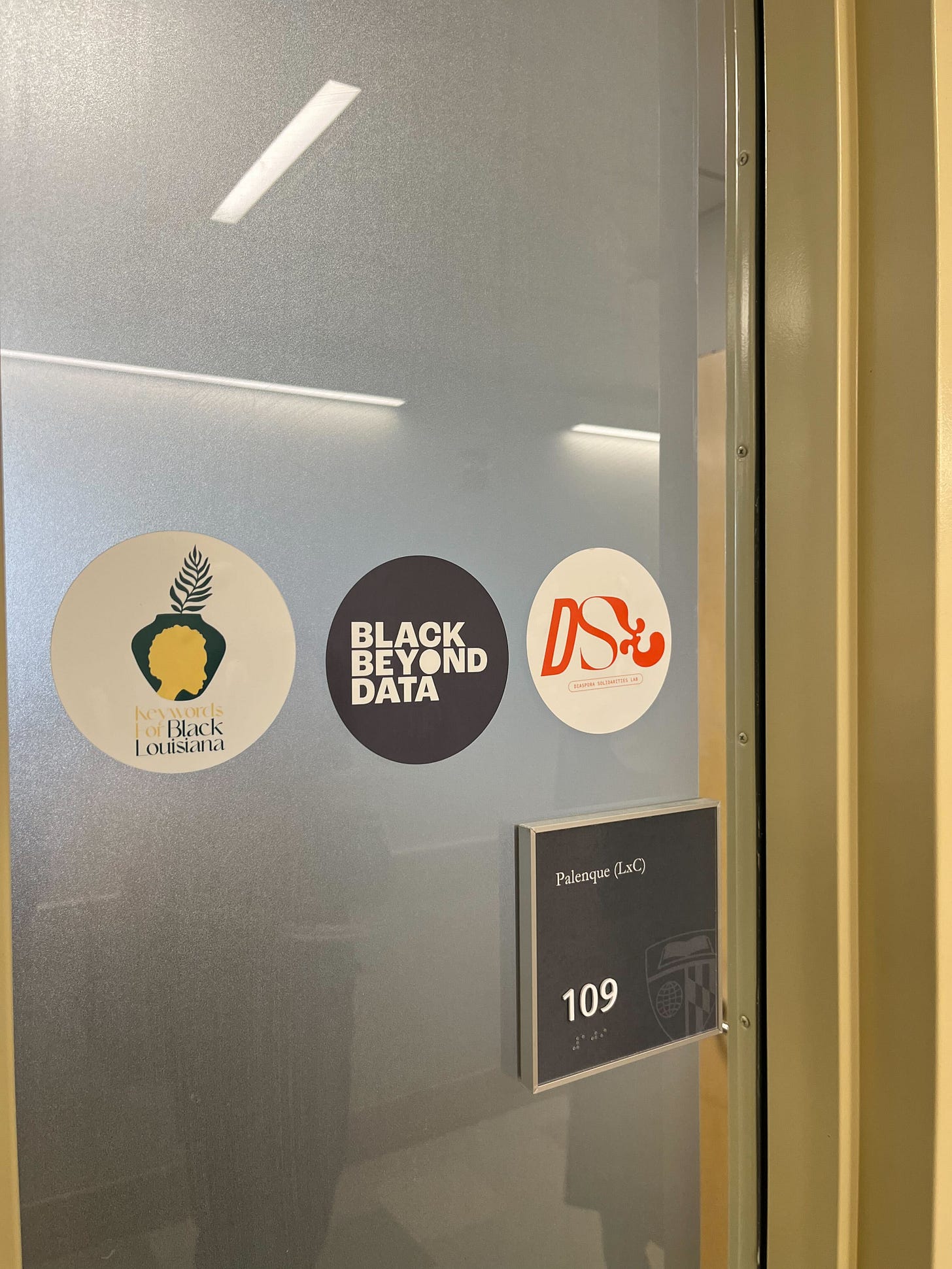

felicidades. This is so exciting to read about.